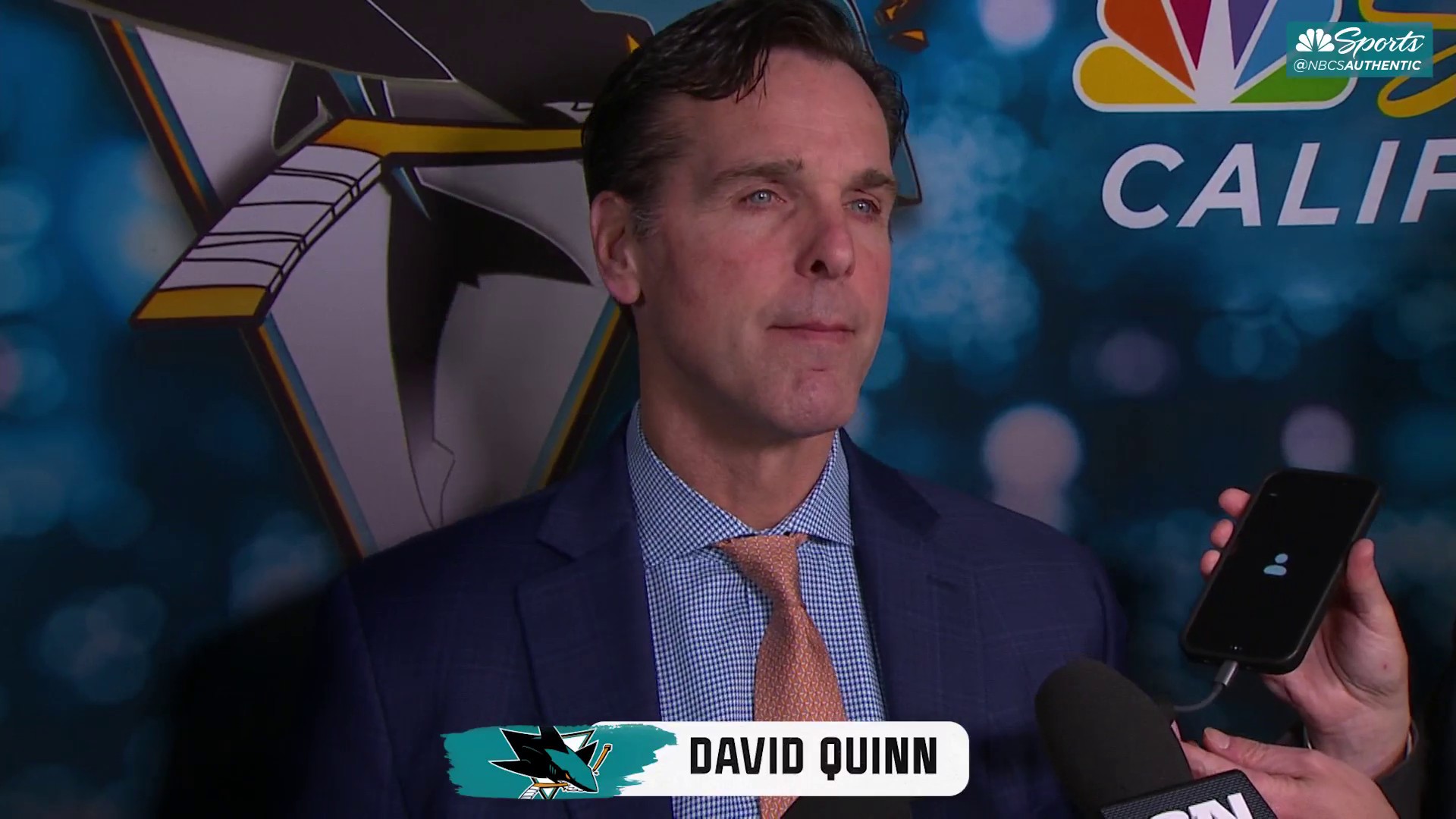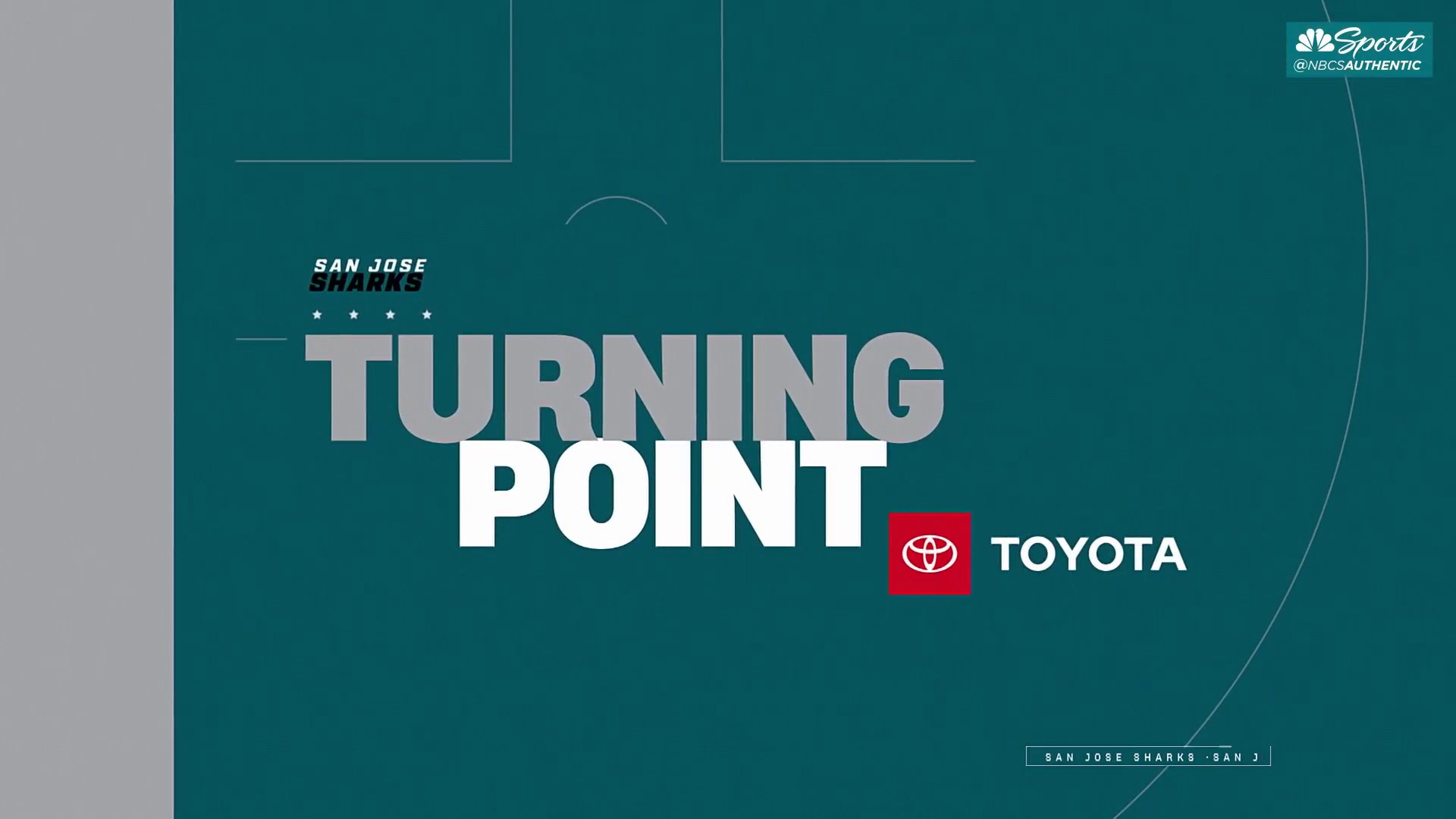
Hockey runs in Martin Jones' family.
His father, Harvey, has been a member of the Vancouver Canucks organization for over 25 years, overseeing the construction of Rogers Arena and currently serving as the Vice President of Construction for Canucks Sports and Entertainment. That connection has had its benefits.
Harvey estimates Martin was exposed to the NHL once or twice a week while growing up. He attended numerous games and spent time in Vancouver's locker room. His teammate -- and fellow goalie -- happened to be the son of Marc Crawford, who was the Canucks head coach at the time. Crawford was able to pull some strings and get both young netminders some ice time with Vancouver's goalie coach, Ian Clark.
Stay in the game with the latest updates on your beloved Bay Area and California sports teams! Sign up here for our All Access Daily newsletter.
"It was a pretty privileged youth for Martin," Harvey told NBC Sports California with a laugh, "being able to hang around the NHL team at that time."
While Martin showed promise as a hockey goalie from a young age, he also was a talented golfer, soccer and baseball player. But when he was forced to specialize in one sport, he elected to pursue hockey. Clearly, that decision has paid off.
"With hockey, he got into fairly high-level programs and played with other really high-level kids and was competing at that level," Harvey recalled. "You go stage by stage and he goes from one level to the next, and you think, 'Well, the guys the next year older -- they're way too good. I don't know how he'll be able to compete at that level.' But the next year he would move up and he'd be able to compete at that level again, so you just keep going, year by year. Pretty soon, he was playing junior hockey and doing very well, and you start thinking maybe there's a chance."
Harvey can pinpoint the exact moment that inkling of hope gained some momentum.
San Jose Sharks
"He went as a 16-year-old, he went to Calgary to play junior hockey in the Western Hockey League for the Calgary Hitmen," Harvey described. "The second year, we went to training camp and I remember after practice ... Kelly Kisio was the coach and he was doing a media interview and somebody brought up Martin to Kelly, and Kelly's response was, 'One day he'll get paid to play this game.'
"That was kind of the first time when I thought, 'Wow, you know, maybe there might be a chance.'"
Kisio wasn't the only one who took notice of Jones, as his Hitmen teammates can attest to.
Brendan Rowinski, who was Jones' roommate while both played for the Hitmen, recalls a conversation with his own father following his first season as Martin's teammate in Calgary.
"If I had to pick one guy on our team who's going to make it," Rowinksi remembers saying, "I think it's going to be Martin Jones."
Rowinski told NBC Sports California that while Jones always has been big, agile and rarely out of position, it is his work ethic that has separated him from the pack.
"He was always the first one on the ice and the last one off, and he always loved being out there," Rowinski remembered. "Always having a good time. A lot of goalies, they don't want to stay for the hard work after practice and shootouts are tough on goalies, but Jonesy was always staying out there and having fun with us."
Bostjan Golicic, another of Jones' Hitmen teammates, added consistency to the list of his best attributes.
"It was hard to score on him because of his size, his ability to move side-to-side and because he is really good at reading the game," Golicic said of Jones. "I think that's one of his biggest strengths. Another is his mental game. He was very consistent for us all of the years, and that helped us win many games."
Unfortunately for Jones, he was stuck behind an older goaltender for his first two seasons with the Hitmen, so when the 2008 NHL Draft came around, he didn't hear his name called.
In a fortuitous surprise, though, he received an invite to attend the Los Angeles Kings' rookie camp that fall. When LA began sending a lot of the undrafted rookies back to their junior teams, Jones was kept around. He remained with the Kings into training camp, and at the end of September, they signed him.
Jones then went back to the Hitmen for two seasons, where he experienced tremendous success. He then played for Team Canada in the World Juniors before moving on to the Manchester Monarchs of the American Hockey League, where he continued to pay his dues for three seasons. When Kings starting netminder Jonathan Quick went down with an injury during the 2013-14 NHL season, Jones finally got the opportunity he long had awaited for.
And boy did he capitalize on it.
Jones won his first eight starts with Los Angeles, including three shutouts. He appeared in 19 games (18 starts) during the regular season, posting a 12-6-0 record with a .934 save percentage and 1.81 goals-against average before sliding back behind Quick upon his recovery. The Kings, of course, would go on to win the Stanley Cup that season.
Jones started 15 games as Quick's backup the following season, but upon reaching restricted free agency, he was hoping for a fresh start somewhere else with Quick having the starting spot locked down. LA traded Jones to Boston, but that wasn't any better of a situation for him. Then, Doug Wilson and the Sharks pulled a fast one, acquiring Jones in a trade with the Bruins just days later. Upon arriving in San Jose, Jones was the clear-cut starter.
The rest, as they say, is history for the Shark of the Day.
[RELATED: How Couture laid foundation for NHL in minor league hockey]
Over five seasons with the Sharks, Jones has gone 148-95-22 with a .909 save percentage and 2.58 goals-against average. After winning the Cup in his first season with the Kings, he nearly did the same with San Jose, but Sidney Crosby and the Penguins had to spoil that.
"When Jonesy is playing his best, his demeanor on the ice, how comfortable he is around the puck, how quiet he is in terms of the movements and his rebound control, how sharp he is ... you can see it, the team feeds off of him," Sharks goaltending scout and development coach Evgeni Nabokov said. "It's great to watch him sometimes when he's on his game."
Looking back on the career his son has had to this point, Harvey is quite proud of all of Martin's on-ice accomplishments. But they pale in comparison to another one of his personal achievements.
"He has always been a real serious kid, very focused and just a really good person," Harvey described his son. "I think, for me, the most important thing is I think he's a really good teammate. For me, that's more important than the success on the ice, is being a good teammate."


